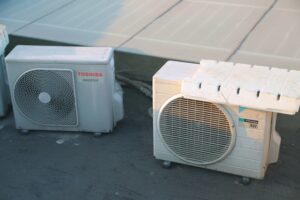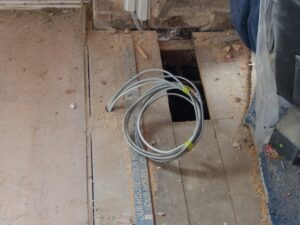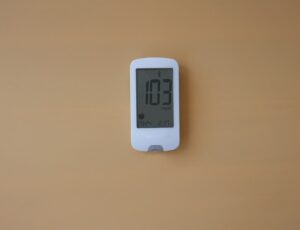Replacing a water heater can enhance your property’s appeal. A modern, energy-efficient water heater can significantly increase home value by appealing to potential buyers who prioritize updated systems. Many buyers are looking for homes with efficient appliances that promise lower utility bills and reliable performance.
Investing in a new water heater is a smart choice that speaks to your commitment to maintaining a well-functioning home. We focus on providing exceptional quality and value in our HVAC and plumbing services. Upgrading your water heater not only boosts your home’s energy efficiency but can also set it apart in a competitive real estate market.
Understanding Home Value and Water Heaters
When evaluating how much replacing a water heater can influence your home’s value, it’s essential to consider the role water heaters play in home valuation, as well as the different types available. This impacts potential buyers and your overall return on investment.
The Role of Water Heaters in Home Valuation
Water heaters are crucial for daily living and significantly impact your home’s perceived value. A modern and efficient water heater reflects a well-maintained property, indicating comfort and functionality to potential buyers.
Investing in a new water heater can lead to enhanced home appeal. Buyers often prioritize homes with updated appliances. Replacing an old unit with a high-efficiency model, like a tankless water heater or a heat pump water heater, adds value through energy savings and reliability.
Homes with modern systems can attract higher offers and quicker sales. You want buyers to see that your home is not just move-in ready but also equipped to minimize future maintenance costs.
Types of Water Heaters and Their Impact on Value
The type of water heater you choose has a direct bearing on your home’s market value. Here’s a quick overview of the most common types:
- Traditional Water Heaters: These units are typically less expensive to install but may lead to higher ongoing energy costs. Their bulky size can be a drawback for buyers looking for energy efficiency.
- Tankless Water Heaters: Known for their space-saving and energy-efficient properties, these heaters provide hot water on demand. They can be appealing for buyers seeking efficiency and lower utility bills, often resulting in increased home value.
- Heat Pump Water Heaters: These innovative units not only save energy but can significantly reduce utility bills. Their popularity is rising, making them an attractive feature for eco-conscious buyers.
We offer both residential and commercial HVAC and plumbing services, ensuring high quality and great value.
Cost-Benefit Analysis
When considering whether to replace your water heater, it’s crucial to weigh the initial installation costs against potential long-term gains. Understanding how maintenance expenses and energy efficiency can impact your return on investment can guide you in making an informed decision.
Initial Installation Cost vs. Long-Term Gains
Replacing a water heater involves significant upfront costs. New units, especially high-efficiency models, can range from $800 to $2,500, including installation. While this may seem steep, consider the energy savings over time.
For instance, modern water heaters can be up to 20% more efficient than older models. This efficiency translates to lower utility bills, ultimately saving you hundreds each year. As energy costs continue to rise, the long-term savings can offset the initial investment.
Moreover, a new system may increase your home’s resale value. Prospective buyers often look for modern, energy-efficient appliances, making your property more appealing.
Maintenance Costs Impact on ROI
Ongoing maintenance is another important factor affecting your return on investment. Older water heaters often require frequent repairs, which can quickly add up. On average, homeowners spend between $150 to $500 annually on maintenance for older units.
By investing in a new unit, you ensure reliable performance, enhancing both comfort and energy savings. This reliability contributes to a higher resale value, making it a smart financial decision for any homeowner.
Energy Efficiency and Sustainable Features
Energy efficiency and sustainable features play a crucial role in enhancing a home’s market appeal. Many homebuyers prioritize these elements, as they directly affect monthly expenses and the environmental footprint.
How Energy Efficient Systems Attract Homebuyers
Homes equipped with energy-efficient systems are attractive to buyers because they promise lower energy bills. Upgrading to modern water heaters, for instance, can significantly cut down on utility costs. Energy-efficient appliances often lead to substantial savings over time, appealing to budget-conscious consumers.
In addition, a home with a high energy rating showcases a commitment to sustainability. This can elevate your property’s value in the eyes of eco-aware buyers. Features like advanced insulation, energy-efficient windows, and smart thermostats create an opportunity to present your home as a smart investment.
Moreover, reliable HVAC systems are vital in this conversation. Such systems not only enhance comfort but also reduce energy consumption.
The Inclusion of Solar Panels and HVAC Upgrades
Incorporating solar panels into your home can provide remarkable energy independence. This renewable energy source can drastically reduce monthly bills and make the property more appealing to future buyers. Homes with solar systems often sell faster and for more money.
Pairing solar power with upgraded HVAC systems creates an attractive energy-efficient package. Advanced heating and cooling systems work seamlessly with solar energy, further optimizing efficiency. This combination demonstrates a commitment to both savings and sustainability.
Additionally, many buyers appreciate the potential for energy tax credits and incentives related to eco-friendly upgrades. This element adds another layer of value when considering future expenses. When upgrading your systems, consider options that maximize energy savings, ensuring you remain competitive in the housing market.
Legal and Practical Considerations
When replacing a water heater, it’s essential to understand the legal requirements and practical implications involved. This includes obtaining necessary permits and ensuring that your plumbing system is compatible with the new unit.
Obtaining Permits for Water Heater Installation
Before you install a new water heater, check local regulations regarding permits. Many jurisdictions require permits to ensure safety and compliance with building codes. Installing a unit without a permit may result in fines or complications during a home sale.
Contact your local building department to determine the specific requirements in your area. This may include submitting plans and scheduling an inspection. Keep in mind that obtaining a permit can also provide benefits related to home improvements, such as tax benefits if you make energy-efficient upgrades.
Evaluating the Plumbing System Compatibility
Assessing the compatibility of your existing plumbing system is crucial before replacing your water heater. You must ensure that your current setup can accommodate the new unit type, whether it’s tankless or traditional.
Consider factors such as water quality, pipe size, and layout. Older systems may require upgrades to meet modern standards, which could involve additional costs. Consulting with professionals will ensure you choose the right system tailored to your unique needs. By evaluating these aspects, you can make informed decisions that enhance your home’s value and efficiency while staying compliant with local regulations.
Additional Home Improvements That Complement Water Heater Upgrades
Upgrading your water heater can enhance efficiency and appeal. To maximize your investment, consider complementary renovations that elevate both curb appeal and the overall property value.
Boosting Curb Appeal and Property Value Through Renovations
Curb appeal is essential for attracting buyers and increasing your home’s value. Consider renovation projects that enhance the exterior.
- Landscaping: Invest in native plants, shrubs, and flowers. A well-maintained garden creates a welcoming atmosphere.
- Exterior Paint: Fresh paint can rejuvenate the look of your home. Opt for neutral colors to attract a broader audience.
- Entryway Upgrade: Install a new front door or update hardware. A modern, secure entry enhances safety and aesthetic appeal.
These renovations not only improve visual attractiveness but also yield a strong return on investment. Buyers appreciate homes that look well-kept and inviting.
Including Luxurious Amenities Like Home Theaters and Swimming Pools
Adding luxurious amenities can significantly increase your home’s marketability and value. High-end features appeal to prospective buyers.
- Home Theater: Design a space with soundproofing and quality audiovisual equipment. This creates a personal entertainment retreat.
- Swimming Pool: A well-designed pool can be a focal point of outdoor enjoyment. Ensure it is maintained and adds to the property’s aesthetic.
These amenities enhance your lifestyle and contribute to a home’s allure. They can lead to quicker sales and higher offers, showcasing your home as a desirable place to live.
For any plumbing or HVAC needs related to these renovations, choose Excel Mechanical. Our professional team is dedicated to providing exceptional quality and great value, tailored to your residential or commercial requirements.




